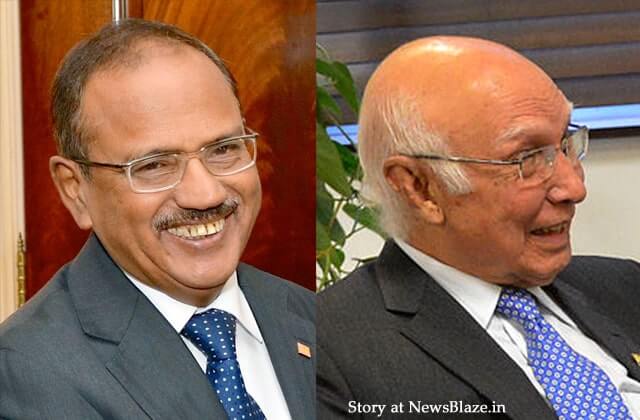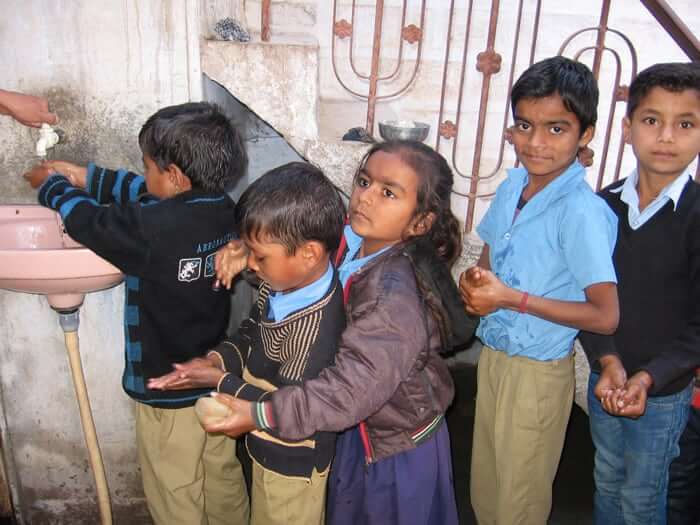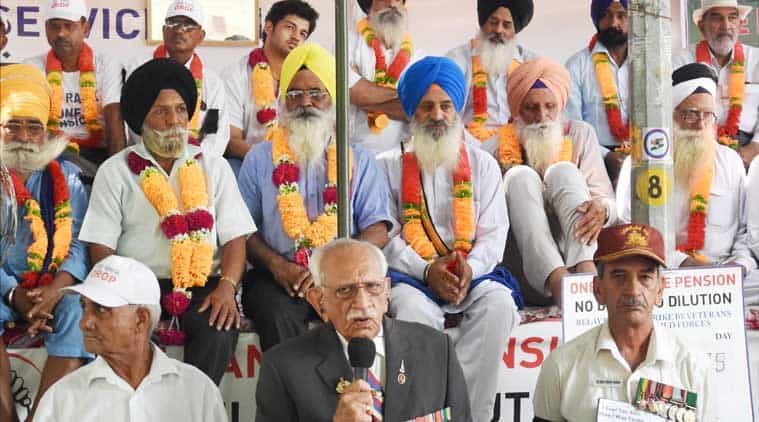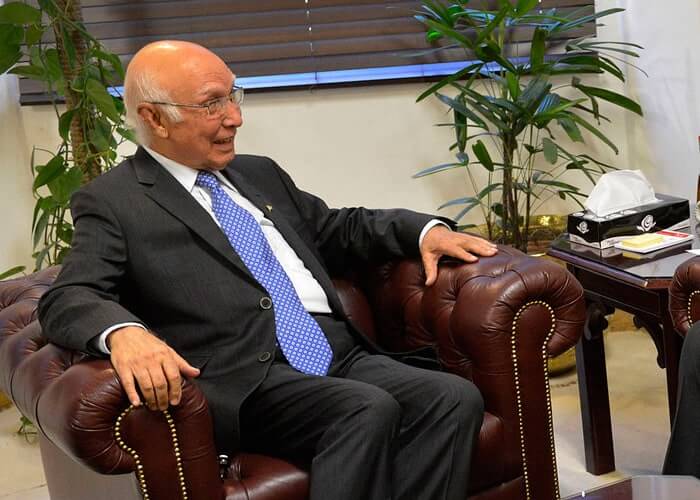Earlier this month, as official talks between India and Pakistan’s National Security Advisors drew near, the Pakistani High Commission threw a spanner in the works by inviting Kashmiri separatist leaders to meet Pakistan’s Sartaj Aziz in New Delhi.
The two opposing camps say they agree that they want a durable peace between them, but they cannot now agree on the terms of the meeting.
Like a pie in the face, Pakistan provoked a response from India by injecting Kashmiri separatist leaders into the conversation ahead of the official meeting. There should have been no need to do that so overtly. Pakistan could have spoken to the separatists by telephone or video link at any time in the past 12 months, yet they arranged it in the open, in New Delhi just before the high-level advisors’ meeting.
In response to Pakistan’s poor choice of action, India changed the terms of reference for the meeting, cutting the issues discussed from three to two.
Pakistan says that in the past, there were always meetings with Hurriyet leaders.
It would seem too obvious that the two neighbouring countries could conduct a single meeting between themselves without bringing in any possible provocation that may derail the talks.
In their own statement – shown below, Pakistan even says “The main purpose of any dialogue between India and Pakistan is to reduce tensions and restore trust as a first step towards normalization.” So why would they arrange a prior meeting that would be easily and immediately be seen as being provocative and controversial? Why not allow their long-awaited high-level meeting to proceed and then have the lesser meeting afterwards, at another time, separated by at least one day?
Diplomacy is very complex, but it isn’t rocket science.
It is time for India and Pakistan to both stop acting like children, and show that adults are actually in charge.

Ajit Doval and Sartaj Aziz (India – Pakistan National Security Advisors)
Pakistan’s STATEMENT calls off the meeting:
Pakistan has carefully analyzed the contents of the Press Conference of the Indian Minister for External Affairs, Mrs. Sushma Sawaraj this afternoon. We have come to the conclusion that the proposed NSA level talks between the two countries would not serve any purpose, if conducted on the basis of the two conditions laid down by the Minister.
While the Indian Minister accepts that, to ensure durable peace between the two countries, there is a need to discuss all outstanding issues through a sustained dialogue process, started in 1998 as Composite Dialogue and renamed as Resumed Dialogue in 2011, she then unilaterally restricts the agenda to only two items: creating an atmosphere free from terrorism and tranquility on the LoC.
Considering that many terror “incidents” blamed initially by India on Pakistan eventually turned out to be fake, it is not improbable that India can delay the Resumed Dialogue indefinitely by concocting one or two incidents and keeping the LoC hot.
It is equally important to recall that terrorism was always a part of the eight point composite dialogue and it was always discussed simultaneously with other issues between the Interior Secretaries. It is not reasonable for India to now assume the right to decide unilaterally that from now onwards, other issues will be discussed after terrorism has been discussed and eliminated.
The main purpose of any dialogue between India and Pakistan is to reduce tensions and restore trust as a first step towards normalization. If the only purpose of NSA level talks is to discuss terrorism, then instead of improving the prospects for peace it will only intensify the blame game and further vitiate the atmosphere. That is why Pakistan had suggested that apart from discussion on terrorism related issues, the two sides should also discuss modalities and if possible a time schedule, for discussions on all outstanding issues including Kashmir, Siachen and Sir Creek, in keeping with the understanding of the Ufa statement. That is the only way to improve the prospects for peace between the two countries.
The EAM’s attempt to draw a distinction between preambular and operative paragraphs in the Ufa statement appears to be an after-thought to justify a position that is counterproductive in terms of the ultimate objective of reducing tensions and improving trust.
As regards the second pre-condition regarding meeting with Hurriyat leaders, it has been pointed out repeatedly that it has been a long-standing practice that whenever Pakistani leaders visited India during the past twenty years, they have been meeting Hurriyet leaders. It would be inappropriate for India to now impose the condition of changing this longstanding practice.
Pakistan, therefore, reiterates that the scheduled NSA level talks cannot be held on the basis of the preconditions set by India.





